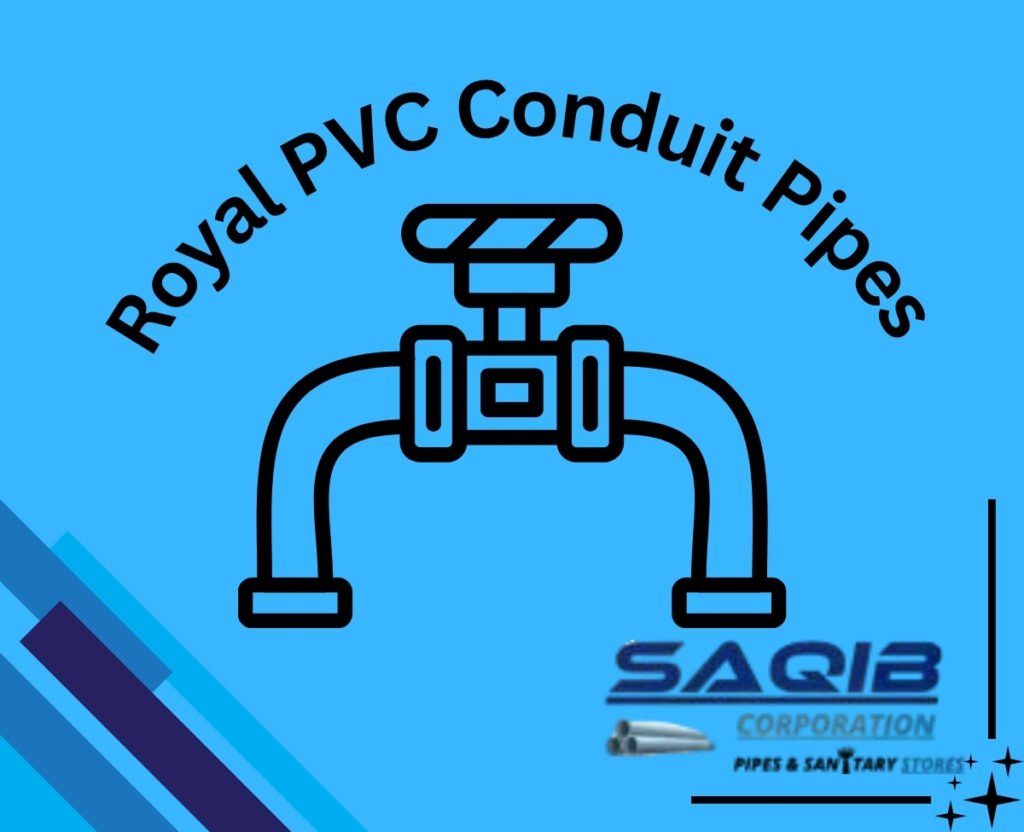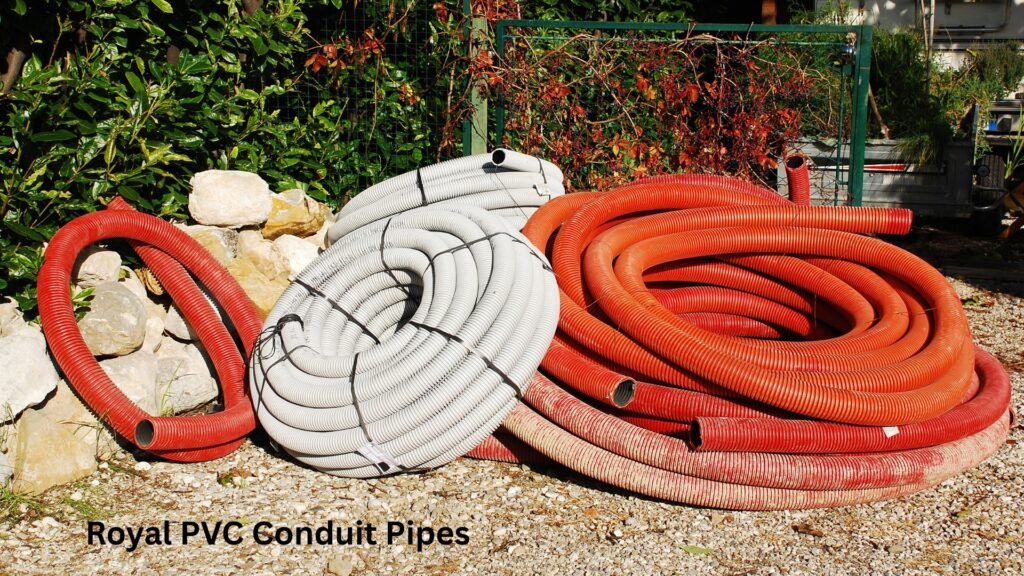Royal PVC conduit pipes are important for electrical systems. They protect wiring and stay reliable in harsh conditions. Their lightweight design, corrosion resistance, and durability make them popular for various installations.
Researchers highlight the efficiency of PVC conduits in enhancing wiring safety. Studies show that they reduce risks such as electrical faults and protect cables from damage. Experts recommend them for sustainable and cost-effective electrical solutions.
These pipes redefine modern electrical infrastructure. They combine safety, adaptation, and sustainability. Choosing Royal PVC conduit pipes ensures long-lasting performance and peace of mind for every project. This blog dives into the key features, benefits, types, and practical applications of Royal PVC conduit pipes. By the end, you’ll understand their indispensable role in electrical installations and why they are a preferred choice for various projects.
Key Features of Royal PVC Conduit Pipes
Strong and Durable
Royal PVC conduit pipes are built to withstand mechanical stress without cracking. They are resistant to impacts and can handle harsh environments. This makes them ideal for installations that require long-term reliability.
Lightweight Material
PVC pipes are lighter than metallic conduits. This reduces handling costs and simplifies the installation process. Pipes can be transported easily, saving both time and labor during electrical projects.
Resistant to Corrosion
The materials used in these pipes resist corrosion from moisture or chemicals. This feature is especially helpful for outdoor or underground wiring.
Fire Resistance
PVC conduit pipes offer limited fire resistance. They slow the spread of flames, giving occupants extra time during emergencies. This safety aspect makes these pipes a secure option for public buildings and homes.
Weather Adaptability
The pipes function consistently across different temperatures. Whether exposed to sunlight, rain, or snow, they maintain their structural integrity. This adaptability translates to high performance in varying conditions.

Types of PVC Conduit Pipes
Rigid PVC Conduit
Rigid pipes are the most common option for surface-mounted or embedded wiring. Available in multiple sizes, these conduits offer an affordable solution for secure installations.
Flexible PVC Conduit
For areas requiring movement or curved routing, flexible conduits are ideal. They are easy to bend into tight spaces, helping in situations where rigid pipes cannot be used.
PVC-Coated Conduit
Some rigid pipes come with an added layer of protection. This coating resists abrasion and provides extra shielding from chemical exposure.
Benefits of Using Royal PVC Conduit Pipes
Easy Installation
The lightweight design simplifies installation work. Whether cutting, bending, or attaching fittings, PVC conduits require less effort compared to heavier alternatives such as steel.
Cost-Effectiveness
These factors add up, making them a budget-friendly option for extensive projects.
Adaptability
PVC conduit pipes adapt to diverse wiring needs. From electrical systems in homes to large-scale industrial facilities, they cater to multiple uses without compromising functionality.
Safe Wiring Environment
The material insulates electricity effectively, reducing risk of accidental shocks. Additionally, the tight, sealed joints help keep wires protected from external damage.
Maintenance-Free
With minimal upkeep required, they serve both residential and commercial needs effectively for decades.
Practical Applications of PVC Conduit Pipes
Residential Wiring
PVC conduits work well for embedding wiring inside walls or ceilings in homes. They organize cables neatly while keeping them safe from physical damage.
Commercial Buildings
Office spaces, malls, and institutions often implement PVC conduit systems to maintain a clean and efficient wiring setup.
Underground Installations
Electrical systems for outdoor lighting or utility networks rely heavily on PVC conduits. Their corrosion resistance makes them dependable for cables buried in soil.
Industrial Settings
Factories involved in heavy machinery require wiring systems capable of handling vibrations and exposure to harmful substances. PVC conduits, especially the coated kind, perform well under such conditions.
Expert Opinions on Royal PVC Conduit Pipes
Researchers and industry professionals consistently rank PVC conduit pipes as an essential element in modern electrical installations. Experts point out their longevity and practicality as reasons for their widespread use. Studies reveal that PVC conduits reduce failure rates in wiring systems compared to non-PVC alternatives. Keeping the environment in focus, PVC is often recommended for its recyclable nature and energy-efficient production process.
Advanced Features for Modern Systems
Smart home systems now use modified conduits that integrate sensors or allow enhanced cable management. Newer variants also cater to higher voltage wiring with additional fire resistance. These innovations ensure that Royal PVC conduit pipes stay relevant in an evolving industry.
Installation Best Practices
- Select the Correct Size
Use pipes that match the diameter of the cables. Overcrowding wires can compromise system durability. - Use Approved Fittings
Clips and connectors should match the conduit material for best results. - Avoid Tight Bends
Limit sharp angles during installation. This prevents unnecessary strain on the wires inside.
Industry Trends in PVC Conduits
PVC conduits help distribute power from renewable setups to homes and industries. Additionally, their adaptability to smart technologies and modular systems indicates a growing demand in modern architecture.
Conclusion
Royal PVC conduit pipes steer the electrical industry toward safer, more sustainable operations. Their combination of affordability and functionality appeals to both large and small-scale projects. By prioritizing durability and safety, these pipes contribute to high-efficiency installations capable of supporting advanced technologies. PVC conduits represent more than traditional wiring structures. Their contribution is a step forward in creating adaptable and eco-conscious electrical systems. Choosing them for upcoming projects ensures peace of mind and lasting performance. Forward-looking solutions like PVC conduit pipes pave the way for smarter, greener infrastructure.

